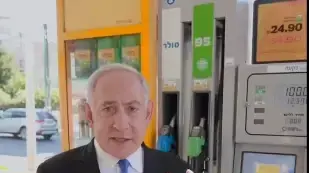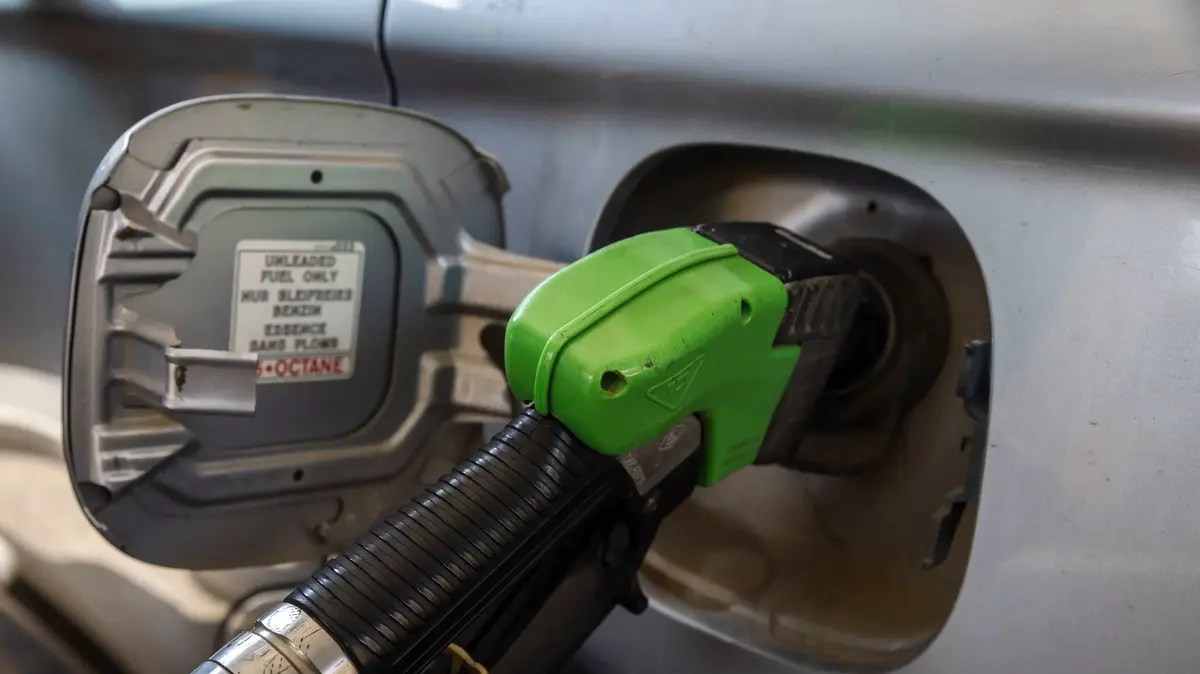So far, the CO2 tax is not to blame for the high gasoline costs - but the energy tax.
CSU Federal Transport Minister Andreas Scheuer demands: If necessary, put it down.
Munich - The fuel prices make the trip to the gas station a painful experience.
The ADAC calculates that diesel and Super E10 are more expensive than they have been in nine years.
Only in the record year 2012 was fuel more expensive.
An uncertain energy market and the approaching winter make further price hikes possible.
According to the ADAC and the Mineralölwirtschaftsverband (MWV), the most important drivers are crude oil prices, which recently reached multi-year highs.
In addition, the stronger dollar is noticeable as crude oil is settled in the US currency.
In the case of diesel, there is also the fact that the rising demand for heating oil drives the price up in autumn.
Petrol price in Germany: Scheuer becomes clear in the “Merkur” interview
For Federal Transport Minister Andreas Scheuer (CSU) there must be a limit to the price of petrol: "If prices explode in winter, they have to end at 1.99 euros." he says in an interview with our newspaper: “It's not just about petrol at the petrol station, all products are becoming more expensive due to higher transport costs.” It is true that commuters in urban areas should drive publicly whenever possible, but: “First of all we have to see that we don't depend on the people in rural areas and the craftsmen. "
Scheuer does not want to attack the CO2 price, which only accounts for a fraction of the price of petrol, but rather the energy tax: "In Germany, this is far above the EU minimum, so something can easily be changed."
Fuel price: Federal Ministry of Transport under Scheuer creates sample invoice
The Federal Ministry of Transport has created a sample invoice.
This is based on a sales price of 1.45 euros for super gasoline.
The tax portion in this example is 97 cents - 66 percent of the total price.
Of this, 65.45 cents are energy tax, only around eight cents are the CO2 price.
Both taxes are constant regardless of the raw material price: the energy tax is levied per 1000 liters of gasoline, the CO2 price per tonne of emitted ton of gas.
That is currently 25 euros, next year 30 euros and then 35 euros in 2023.
Unpleasant for consumers: VAT is also due on these two taxes, at least 19 percent.
Bavaria's Minister of Economic Affairs Hubert Aiwanger (Free Voters) is also calling for a fuel price cap of two euros: “The energy taxes must therefore be down.” He also attacks the renewable energies (EEG) surcharge, which is used to promote the expansion of renewable energies: “The federal government must react before winter, ideally by abolishing the levy entirely ”.
A compensation model already exists in Austria.
The “eco-social tax reform” of the black-green federal government is only a few days old and provides for a staggered climate bonus to alleviate the tank shock.
The further a citizen lives in the country, the more money they will get back from CO2 pricing from 2022.
In Vienna there is 100 euros per capita per year, in a mountain valley in Carinthia 200 euros.
In between there are levels 133 and 167 euros.
The amounts are expected to increase every year with the price of CO2.
Rising costs: Greens want "energy money", FDP the "climate dividend"
Other EU countries have reacted at short notice to cushion electricity and heating costs.
France has promised a tariff brake and wants to pay poor households 100 euros.
Italy wants to spend three billion euros to waive some of the electricity and gas bills for households, for example through tax cuts.
The German parties have plans in their election manifestos for a fair allocation of the CO2 price.
The Union wants to give the income from emissions trading back to citizens and companies in full via a cheaper electricity price.
The SPD wants to use the money to replace the EEG surcharge.
The Greens plan to return the CO2 price directly to the citizens through energy money.
The FDP is planning the same under the term climate dividend.
The outgoing federal government does not want to do anything more.
A government spokesman said he could not announce any measures affecting the next government.
However, relief has already been decided: a reduction in the EEG surcharge from state funds, an increase in the commuter allowance and more housing benefits.














